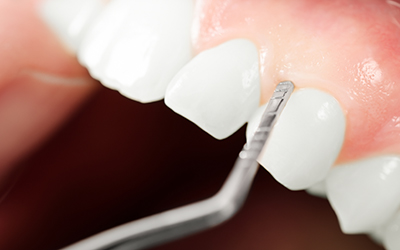Image Credit:
File ID 43636985 | © Batke82 | Dreamstime.com

Receding gums, also known as gingival recession, can be a widespread dental concern that affects both oral health and aesthetics. It occurs when the gum tissue pulls back, exposing the tooth roots and potentially leading to tooth sensitivity and an increased risk of decay.
If not treated in time, receding gums can even cause tooth loss. Fortunately, there are effective treatment options available to address this issue. In this article, we will explore how receding gums are treated, including bone graft dental procedures, periodontal disease treatment, and laser treatment for receding gums.
One of the main treatment approaches for receding gums is addressing the underlying cause, often periodontal disease. Treating periodontal disease typically involves a deep cleaning procedure called root planing and scaling.
This process removes plaque and tartar buildup from below the gumline and smooths the tooth roots to encourage gum tissue reattachment and reduce the likelihood of further recession.
In cases where significant gum and bone loss have occurred, a bone graft dental procedure can be helpful. A bone graft involves adding bone or bone-like material to the affected area to promote new bone growth and restore the supporting structures around the teeth. This helps stabilize the gums and prevent further recession.
Another treatment option that helps with receding gums is laser therapy. Laser treatment for receding gums utilizes a dental laser to gently remove diseased tissue in the gums and stimulate the growth of healthy tissue.
This innovative approach is minimally invasive, causing less discomfort and promoting faster healing compared to traditional surgical methods. Laser therapy can effectively reduce gum recession and improve the overall appearance of the smile.
It's important to note that the treatment will depend on the severity of the condition and the individual patient's needs.
A thorough evaluation by a dental professional is crucial to determine the most appropriate treatment plan.